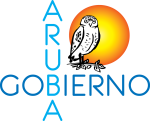Department of Education Aruba holds the first Papiamento Literacy meeting for the 2024-2025 school year.
ORANJESTAD - Recently, the first Papiamento Literacy meeting for the 2024-2025 school year took place.
It marked the beginning of the preparation process for 2nd-grade teachers. The preparation program consists of six encounters to properly equip the teachers to continue the implementation of the new methods in 2nd grade.
Various global studies indicate that when children receive education in their native language, they express themselves better, positively impacting their academic experience. During a recent visit to several primary schools, Minister of Education and Sport Endy Croes witnessed a positive difference, where students are much more active during lessons.
The pilot project Multilingual School (PSML) was launched at Colegio San Hose and Colegio Conrado Coronel in 2009. From there, PSML developed an implementation plan for the core subjects in Primary Education called the Aruba Multilingual School (SAM) plan. Based on the data and experience collected from 2009-2024 and the integrated language teaching method, the government decided to start with the core subjects in Papiamento and Dutch. It includes implementing reading and writing in Papiamento and Dutch in a way that fits the context of Aruba.
The teachers from the two pilot schools (PSML) were also present to support the 2nd-grade teachers starting the preparation process. Finally, the DEA explained the preparation, professionalization, and guidance plan that it will offer to the 2nd-grade teachers.
Linguist Dr. Joyce Pereira, who has always advocated for the value of the Papiamento language and its importance in the education system, gave a presentation titled: "The Importance of Papiamento for the General Development of Children Living in Aruba." A UNESCO report emphasizes that children need to receive education in a language they understand; using a language they do not hear outside of school hinders their learning, and at least six years of education in their mother tongue is essential.
According to Dr. Pereira, based on UNESCO documents and studies, Aruba’s education is not authentic and not based on the needs or realities of the island. She also pointed out that the education system is not student-centered and is against children's rights.
Dr. Pereira spoke about the importance of the mother tongue, stating that language is the most crucial aspect that defines us as people; no language is better, more beautiful, or more important than another. For every nation, their language is a living treasure of great value, and it is through language that a people passes on knowledge, history, and culture from one generation to the next. When a language dies, the culture, history, and heritage are lost.
The first meeting concluded with an active exercise for teachers to connect and create different Professional Learning Communities (CPS). Each CPS focuses on a specific area of importance for its participants. In total, they formed five CPS groups. In the upcoming meetings, the CPS will continue to work on preparing for the implementation of reading and writing in Papiamento in 2nd grade.
The next monthly preparation meetings will be on October 14, 2024, November 25, 2024, January 27, 2025, March 31, 2025, and May 19, 2025. DEA will guide each meeting in close cooperation with the Center for Continuing Professional Development (CDPC) of the Instituto Pedagogico Arubano (IPA).
The DEA extends its gratitude to the various facilitators from Dienst Publieke Scholen (DPS), Stichting Katholiek Onderwijs Aruba (SKOA), and CDPC for their contributions to the process of the first meeting of this school year and also thanks everyone who, in one way or another, supported the event.
For more information related to education in Aruba, visit www.ea.aw. You can also follow us on social media via our Facebook and Instagram pages @educationaruba.
